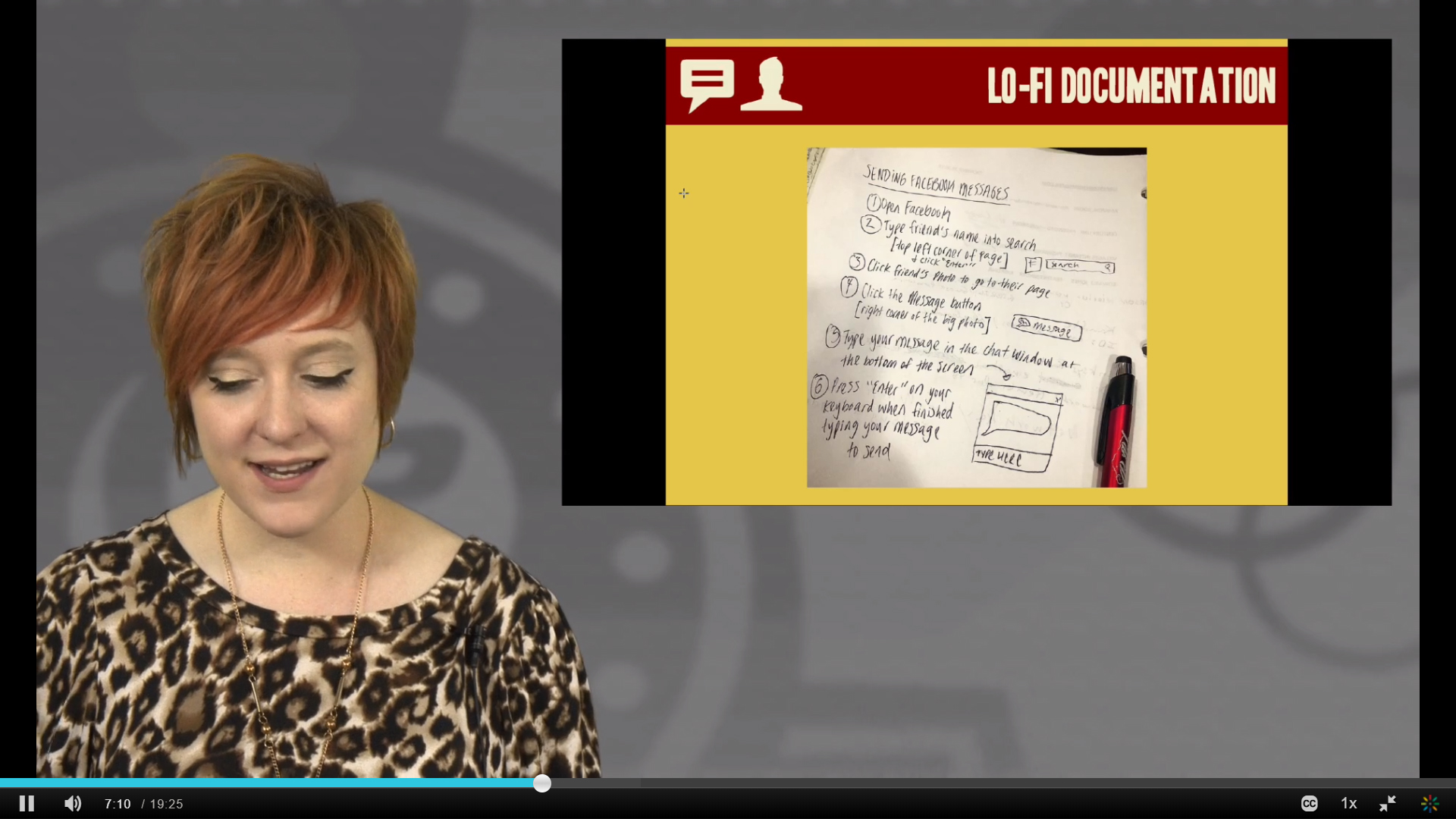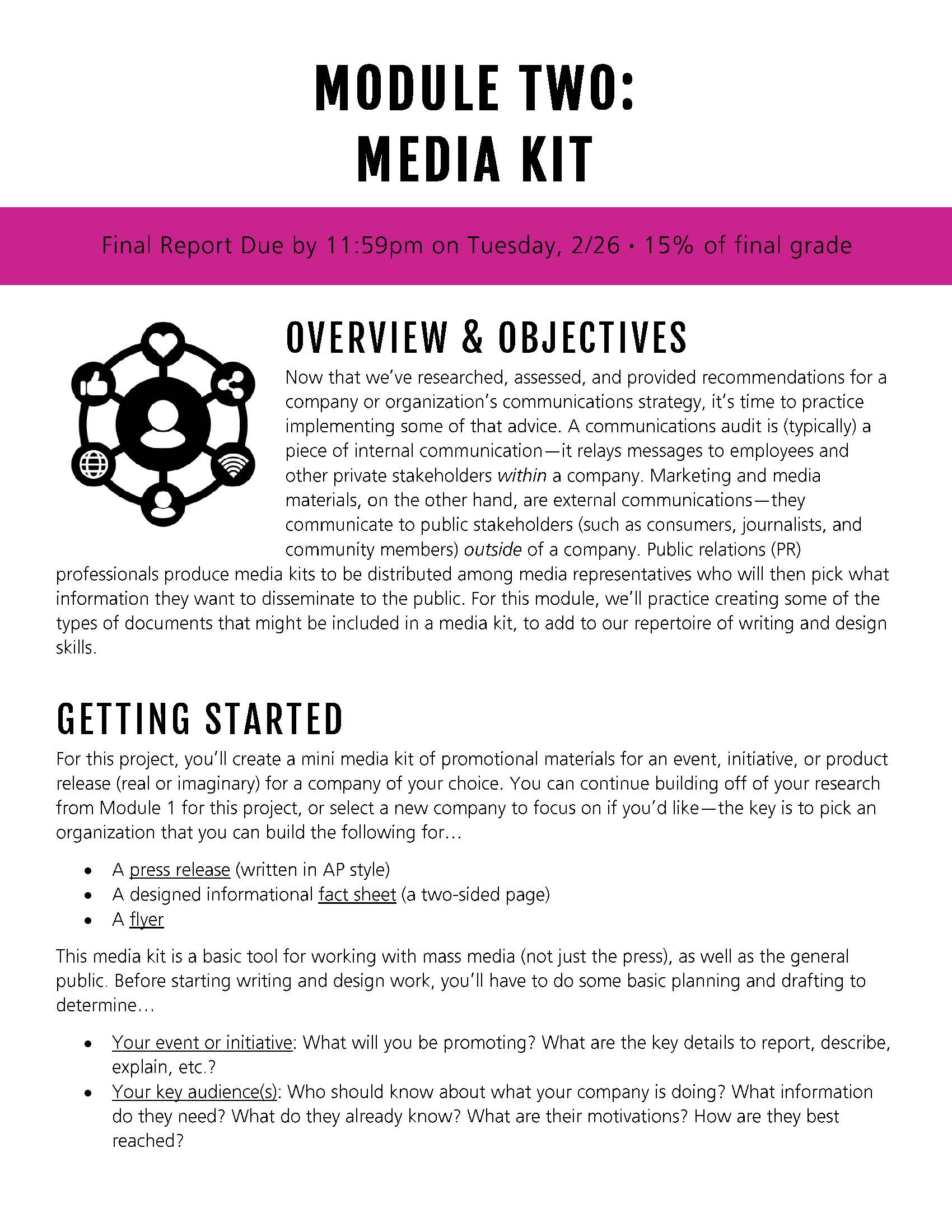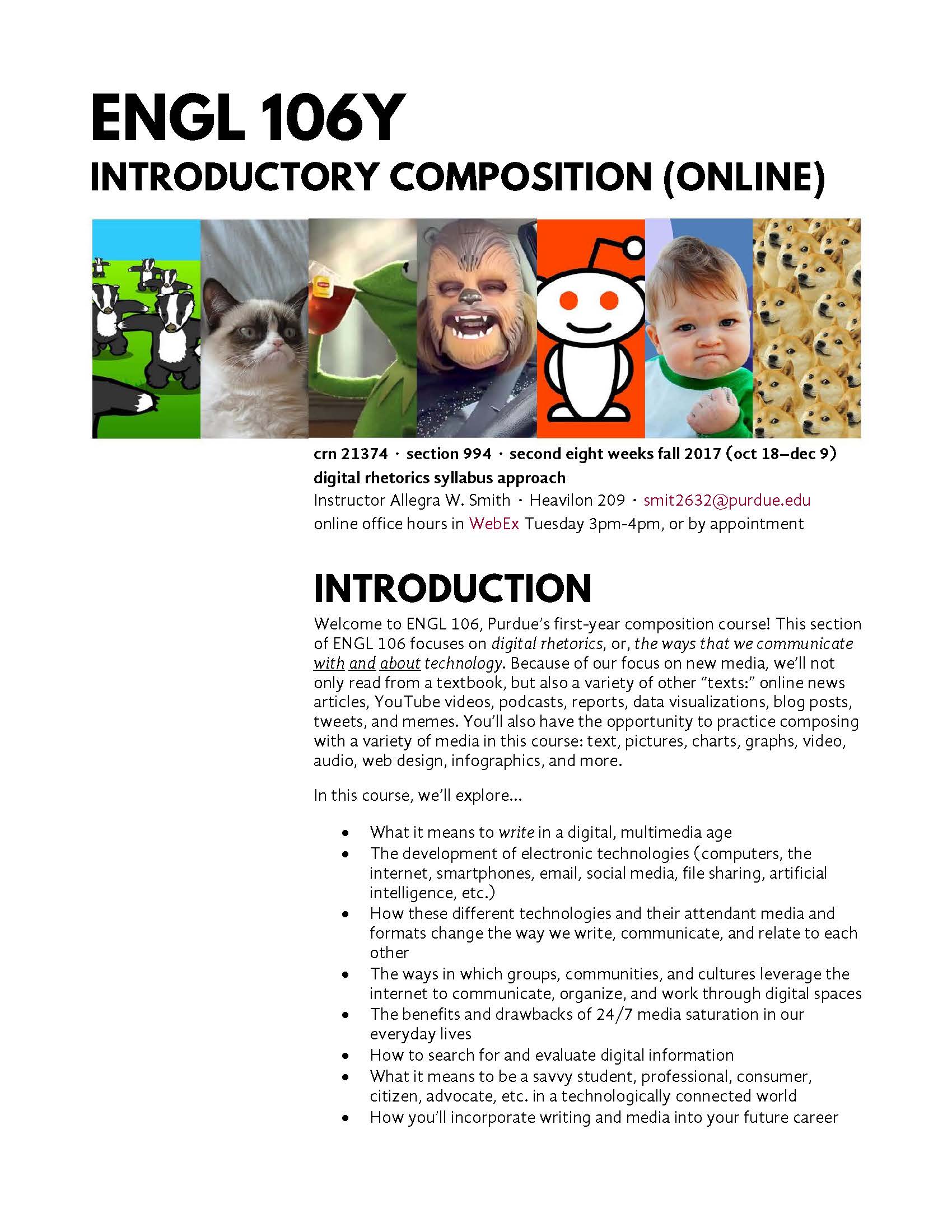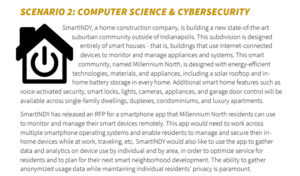Here you’ll find syllabi, assignment descriptions, rubrics, and information on courses I have designed and taught.
Online Writing Instruction Resources
Technical Writing Online (ENGL 421-DIST)
Purdue University: Summer 2019, Summer 2020

English 421 helps students become better technical writers—across global audiences, for multiple purposes, and in a variety of media. The work of the course is centered on presenting technical material in written and visual formats that demonstrate an awareness of audience needs and contexts, achieve implicit and explicit rhetorical purposes, and work to effectively address workplace, social, or global problem. When I teach this course in an 8-week summer session, I build students’ understanding of working remotely through exercises in correspondence, proposal writing, documentation, and technical description.
To teach proposal writing, I sorted students into project teams with classmates from similar programs/majors. I then designed scenarios targeted to those disciplines (aviation, cybersecurity, mechanical engineering, public health, etc.), which formed RFPs for students to research and respond to. Students valued this learning experience, writing in their end-of-semester evaluations that, “Allegra did a really good job of making the class relevant to all the students who were enrolled, even though we were in many different majors;” and “I especially enjoyed working in a group, because it forced us to learn how to communicate over distance.”
- Assignment Description for Group Proposal
- Scenarios for Group Proposal
- Student Example Proposal: “Novel Method of 3-D Printing in Microgravity” (created by a group of mechanical and aerospace engineering students for a NASA “Getaway Special” program promoting small experiments in space)
Introduction to Professional Writing (ENGL 306)
Purdue University: Fall 2018, Spring 2019 Required for all students in the professional writing major and minor at Purdue University, ENGL 306 introduces students to the practice of professional writing, and the wide array of careers available to professional writers. Students study texts, concepts and contexts important to the practice of professional writing and produce documents for both print and digital distribution.
Required for all students in the professional writing major and minor at Purdue University, ENGL 306 introduces students to the practice of professional writing, and the wide array of careers available to professional writers. Students study texts, concepts and contexts important to the practice of professional writing and produce documents for both print and digital distribution.
I designed my sections of ENGL 306 as a “sampler platter” of the types of work that professional writers do, giving students experience in writing, researching, and designing communication audits, documentation, websites, press releases, flyers, fact sheets, and job documents. Additionally, students introduced their classmates to writing and technology resources throughout the semester in informal presentations, to build a culture of resource-sharing and collaboration.
- Syllabus for ENGL 306, Introduction to Professional Writing
- Assignment Description for Communications Audit
- Assignment Description for Media Kit
- Assignment Description for Documentation
- Assignment Description for Informational Interview Website
- Assignment Description for Employment Portfolio
Introductory Composition Online (ENGL 106Y/ENGL 106-DIST)
Purdue University: Fall 2017
 Alongside Director Dr. Bradley Dilger and Second Language Studies PhD Candidate Aleksandra (Ola) Swatek, I designed Purdue’s first-ever online introductory composition course in Summer 2017, and piloted one of the first sections during the second eight weeks of Fall Semester 2017. ENGL 106 is the standard 4-credit hour composition course for students at Purdue, providing students with the opportunity to interpret and compose in both digital and print media across a variety of formats. ENGL 106-DIST was designed around a theme of digital rhetorics, or, the ways that we communicate with and about technology. In the 8-week condensed format, students completed three major course projects, arranged in a learning progression that moved from inward reflection to outward advocacy directed to a specific community.
Alongside Director Dr. Bradley Dilger and Second Language Studies PhD Candidate Aleksandra (Ola) Swatek, I designed Purdue’s first-ever online introductory composition course in Summer 2017, and piloted one of the first sections during the second eight weeks of Fall Semester 2017. ENGL 106 is the standard 4-credit hour composition course for students at Purdue, providing students with the opportunity to interpret and compose in both digital and print media across a variety of formats. ENGL 106-DIST was designed around a theme of digital rhetorics, or, the ways that we communicate with and about technology. In the 8-week condensed format, students completed three major course projects, arranged in a learning progression that moved from inward reflection to outward advocacy directed to a specific community.
